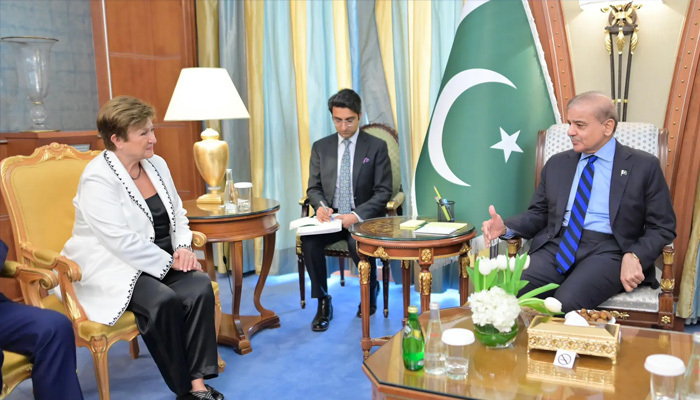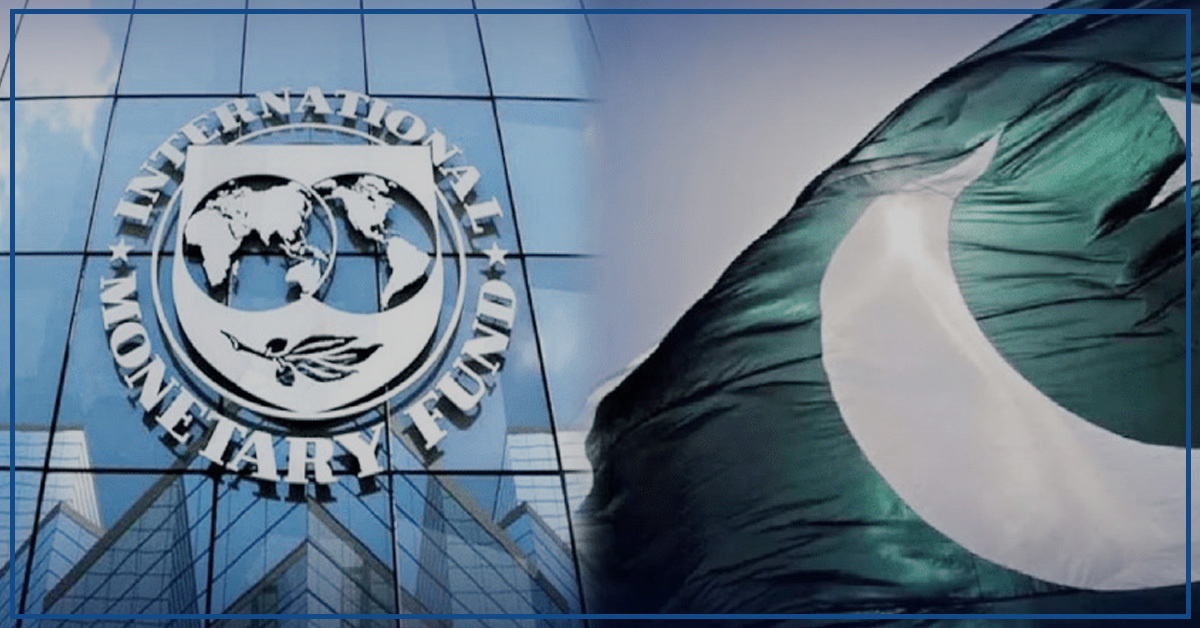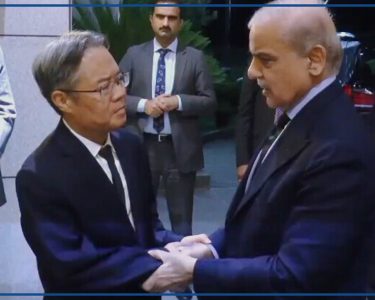A new staff-level loan agreement has been reached between Pakistan and the International Monetary Fund (IMF), through which Pakistan will receive $7 billion over 37 months. Final approval of the loan is pending from the IMF Executive Board.
In a statement by IMF’s Mission Chief to Pakistan, Nathan Porter, it was announced, “The Pakistani authorities and the IMF team have reached a staff-level agreement on a comprehensive program, endorsed by both federal and provincial governments, that could be supported by a 37-month Extended Fund Arrangement (EFF) amounting to SDR 5,320 million (approximately US$7 billion at current exchange rates).”
The agreement is contingent upon the approval of the IMF Executive Board and the timely confirmation of necessary financial assurances from Pakistan’s development and bilateral partners.
According to the IMF statement, the program aims to build on the macroeconomic stability achieved over the past year by enhancing public finances, curbing inflation, rebuilding external buffers, and eliminating economic distortions to promote private sector-led growth.
The authorities’ policy objectives include sustainable public finances through gradual fiscal consolidation based on reforms to broaden the tax base and remove exemptions while increasing resources for critical development and social spending. The authorities plan to increase tax revenues by 1.5% of GDP in FY25 and 3% of GDP over the program duration.

“The recently approved FY25 budget targets an underlying general government primary surplus of 1 percent of GDP (2 percent in headline terms). Revenue collections will be supported by simpler and fairer direct and indirect taxation, including bringing net income from the retail, export, and agriculture sectors properly into the tax system. Concurrently, the FY25 budget allocates additional resources to expand social protection by increasing both the generosity and coverage of BISP, education, and health spending,” the statement read.
The policy objectives also include a fairer balance of fiscal efforts between the federal and provincial governments. They have agreed to rebalance spending activities in line with the 18th Amendment through a National Fiscal Pact, which devolves higher spending responsibilities to provincial governments for education, health, social protection, and regional public infrastructure investment, thereby improving public service provision.
“Provinces will simultaneously increase their tax-collection efforts, including sales tax on services and agricultural income tax. All provinces are committed to fully harmonizing their Agriculture Income Tax regimes with the federal personal and corporate income tax regimes through legislative changes effective January 1, 2025,” the statement added.
The IMF emphasized that reducing inflation, enhancing access to financing, and building strong external buffers are key to development and resilience. Monetary policy will continue to focus on supporting disinflation, which will help protect real incomes, especially for the most vulnerable.
“To buffer against shocks and build reserves, the State Bank of Pakistan (SBP) will maintain a flexible exchange rate and continue improving the functioning of the foreign exchange market and transparency around FX operations. In terms of financial stability, the authorities plan to take measures to deepen access to financing, strengthen financial institutions, address any undercapitalized banks, and upgrade their crisis management framework,” it added.
Another policy objective is to restore energy sector viability and minimize fiscal risks through timely adjustment of energy tariffs, decisive cost-reducing reforms, and avoiding further unnecessary expansion of generation capacity. The authorities remain committed to targeted subsidy reforms, replacing cross-subsidies to households with direct and targeted BISP support, the IMF stated.
“Promoting private sector and export dynamism by improving the business environment, creating a level playing field for all businesses, and removing state distortions. In this regard, the authorities are advancing efforts to improve SOE operations and management, as well as privatization (prioritizing the most profitable SOEs) and strengthening transparency and governance around the Pakistan Sovereign Wealth Fund and its operations,” it added.
The global lender also noted that Pakistan is phasing out incentives to Special Economic Zones, agricultural support prices, and associated subsidies, and refraining from new regulatory or tax-based incentives or guaranteed returns that could distort the investment landscape, including for projects channeled through the Special Investment Facilitation Council.
“The authorities have also committed to advancing anti-corruption efforts, governance and transparency reforms, and gradually liberalizing trade policy,” the statement concluded.





